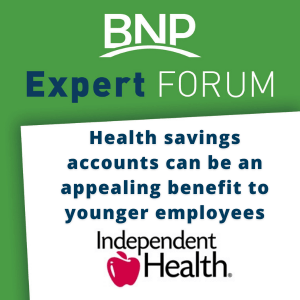Expert Forum: Will a sports injury, genetics, or overactivity affect me or my child as we age?
September 7, 2022
Blog Categories
By Excelsior Orthopaedics
You might not think about it when you’re a teen or young adult, but the orthopaedic injuries we experience in our youth can have implications later in life. Your genetic makeup may also play a factor in joint deterioration or mobility as you get older, but it’s not all doom and gloom: You or your child CAN make a full recovery and also take steps to stay healthy as you age! Here are some common scenarios that Excelsior Orthopaedics treats people for every day.
My dad had a knee replacement at 55 and my mother had one at 60. Does that mean I will have knee issues or arthritis as I get older?
“If members of your family have or did have osteoarthritis (OA), your risk of developing OA increases. However, a family trait does not mean you will inevitably develop the disease, especially if you can partake in preventative care,” says Jeannethe King PT, DPT, ATC, a physical therapist. “Experts recommend that adults engage in 150 minutes per week of at least moderate physical activity. Some moderate and low impact activities that are recommended include walking, swimming, or biking. For people who worry that physical activity may make OA worse or are unsure how to exercise safely, participation in physical activity programs or physical therapy can help reduce pain and disability related to arthritis and improve mood and the ability to move.”
My 11-year-old son fractured his elbow riding his bike, and even after therapy, he has some continued limitation in forearm rotation. Does this mean he will always have limited range of motion in that arm or that he will have arthritis when he gets older?
“Limited range of motion after a course of therapy does NOT mean this will be a limitation forever,” says occupational therapist Justine Smith, MS, OTR/L. “Continued diligence with therapist-prescribed daily stretching and return-to-normal daily use of the arm will encourage full mobility.”
“Be patient. It may take 6-12 months to feel and move ‘normal’ again, following a traumatic injury. It is safe to say that not all injuries will cause arthritis later in life,” Smith says.
I love running, but I constantly hear from friends and family, that running is bad for your body and joints, is this true, and will I be more likely to get arthritis later in life?
“I get this question all the time and I love it, because there is so much misinformation out there! This topic has been repeatedly examined over the course of time, and there is no evidence that running worsens arthritis or causes you to get more arthritis,” says Dr. Jason Matuszak, a physician specializing in sports medicine. “On the contrary, runners have about the same amount of arthritis or likelihood of getting arthritis, but have better function, less pain, are more active, and enter assisted living and nursing homes later in life than their non-running counterparts. You are not more likely to need a joint replacement or need a joint replacement sooner by being a runner!”
My 12-year-old wants to join a travel team in addition to their school team, will this help them in the long run?
A lot of times, adding an additional team during a busy season can do more harm than good.
“Parents should use their child’s age to moderate the amount of sport activity each week (1 year = 1 hour of sports), meaning the 12-year-should should ideally engage in no more than 12 hours per week of sports,” says Kendall Marshall, DAT, ATC, CSCS, an athletic trainer and team lead with a doctorate in athletic training. “This helps to avoid overuse injuries that can take your child out of the game. Psychologically, there is an increased risk for psychological burnout and not enjoying the sport as one specializes in a single sport.”
If you’re looking for a way to give your kid a competitive edge, Marshall recommends an age-appropriate resistance training program or a skill development camp that fits into your schedule.
“A lot of benefit can also be found from athletes trying a new sport in the off-season and building their physical literacy skills as a way to keep them engaged and keep them in sport for as long as possible,” Marshall says. “Less than 7 percent of high school athletes end up moving onto collegiate sports and even less to the professional ranks, so the goal should ALWAYS be enjoyment of the activity and building skills to make successful young adults on and off the field.”
And finally, this popular myth: Is it true that cracking your knuckles makes you get arthritis?
“Research shows this is NOT true, in fact limited evidence suggests the opposite may be true: People who are habitual knuckle crackers may be LESS likely to have symptomatic hand arthritis,” says Matuszak.
Excelsior Orthopaedics is open throughout Western New York for consultations, therapy, sports performance training, and more. We’re a fun group of people, too! Check out Excelsior’s summer recap of our commitment to community as well as patients below.
About the Author
 Excelsior Orthopaedics was founded on the belief that every patient deserves to receive care that does more than fix a problem. They deserve care that makes them feel comfortable. Care that complements their lifestyle and achieves their goals. Care that lives up to expectations, and is delivered by a team of professionals all equally dedicated to complete, long-term results.
Excelsior Orthopaedics was founded on the belief that every patient deserves to receive care that does more than fix a problem. They deserve care that makes them feel comfortable. Care that complements their lifestyle and achieves their goals. Care that lives up to expectations, and is delivered by a team of professionals all equally dedicated to complete, long-term results.
Interested in producing an Expert Forum for your organization? Contact our Member Engagement Team: Nancy McNamara and Ann Brooker.
Related Posts
Expert Forum: Health savings accounts can be an appealing benefit to younger employees
With employee resignations and job openings currently at levels not seen for more than 20 years, employers are struggling to find ways to attract and retain high-skilled workers. In order to survive and thrive during the “Great Resignation,” it’s become more imperative than ever for companies and businesses to provide a wide range of employee benefits.
Expert Forum: Expanding Resources for Minority Owned Businesses
At Bank of America, our goal is to drive responsible growth in the markets and communities we serve. Part of this commitment includes addressing the root causes of inequity through the lens of economic opportunity and racial equality.
- « Previous
- 1
- 2


